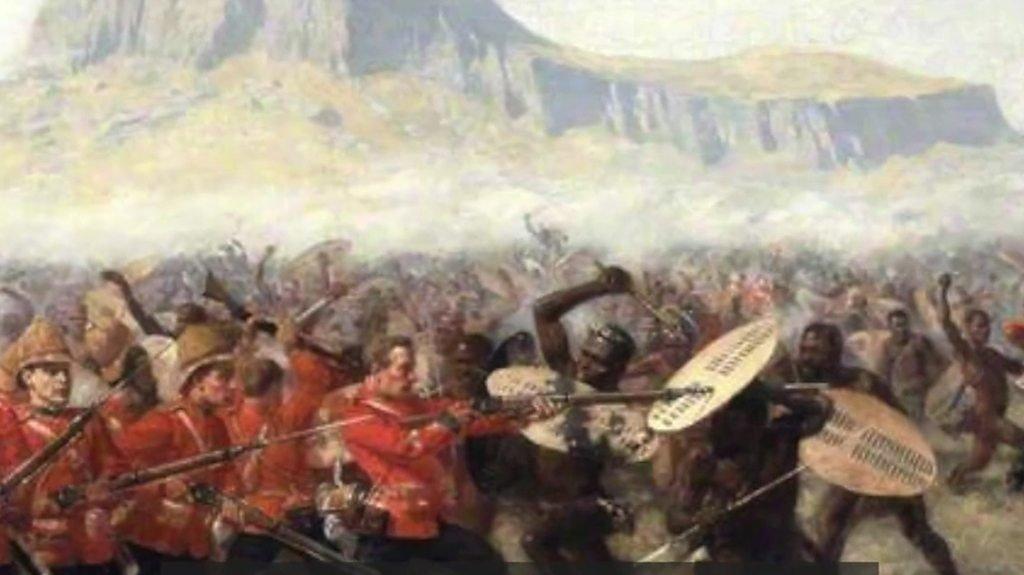Can South Africa's Democratic Alliance bounce back?
- Published
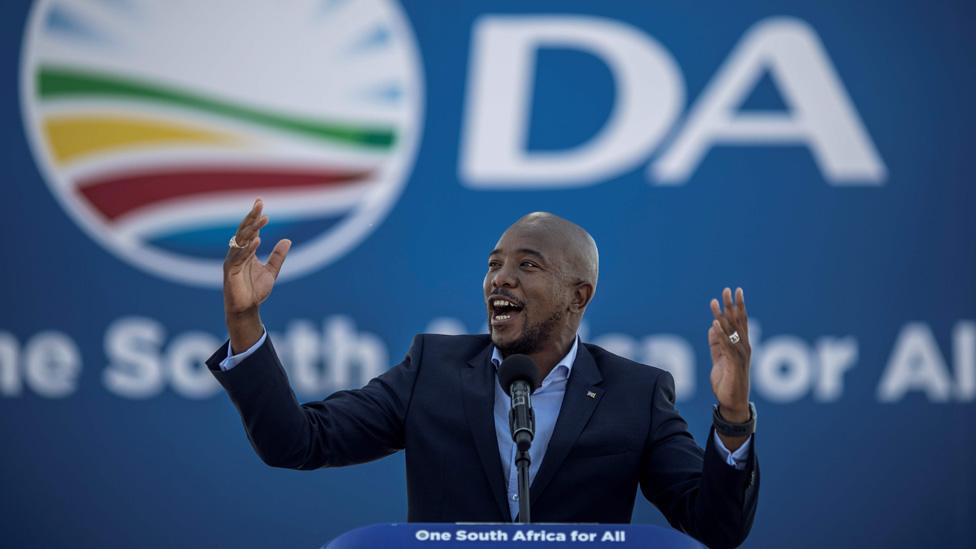
Mmusi Maimane became the leader of the Democratic Alliance in 2015
The resignation of the leader of South Africa's main opposition party has robbed it of a man who was viewed as a potential president and raised questions of whether it can tackle the country's ingrained racial injustice, as Andrew Harding reports from Johannesburg.
For many years, South Africa's biggest and most disciplined opposition party, the Democratic Alliance (DA), has had a relatively easy ride.
Its power and reach grew consistently in successive elections as it began to take control of important municipalities, led since 2015 by a charismatic young black man, Mmusi Maimane, the party started to position itself as a force that would soon sweep to power nationally.
The DA was helped in this project by the increasingly spectacular failings of the governing African National Congress (ANC) - particularly in the last decade - under what many South Africans concluded was the overtly corrupt, tired, and incompetent leadership of former President Jacob Zuma.
The DA wisely positioned itself as the anti-corruption party, and earned an impressive reputation for good governance in towns and communities across the country. Mr Maimane gave barnstorming speeches haranguing President Zuma as a "broken man".
ANC wakes up
The DA had little incentive to resolve deep policy rifts within its own ranks. It believed that all it had to do was say "we're better than the ANC", and the voters would surely follow, ushering South Africa's young democracy towards electoral maturity in which a governing party appeared vulnerable.
But then, in 2017, the ANC woke up.
At the end of that year, it dumped the discredited Mr Zuma and brought in a new leader, Cyril Ramaphosa, who appeared genuine in his commitment to tackle corruption and fix a broken economy.
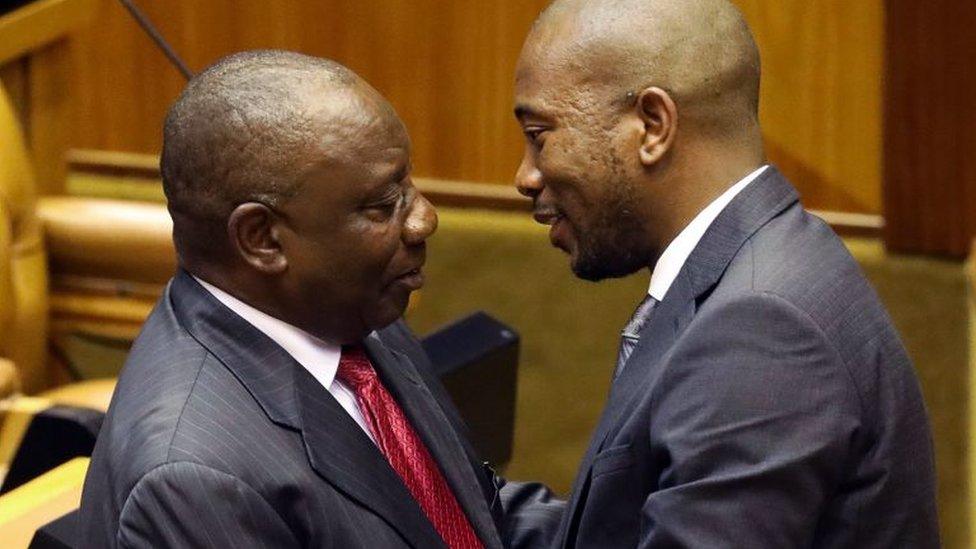
Mmusi Maimane (right) and the DA struggled to deal with the challenge of President Cyril Ramaphosa (left)
At this year's elections, many black South Africans chose to give the ANC - the party that once liberated them from racist white-minority rule - one more chance, while the DA's white support base also began to fracture.
For the first time, the DA's share of the national vote dropped, slipping down to 21%.

Some soul-searching, and staff changes in the party, were inevitable. But in recent weeks the DA has gone much further than that.
The election setback has triggered a vicious factional war inside the party - a war that now threatens to push it back to the margins of South Africa's political landscape.
Some commentators are wondering if the party can even survive. A great deal is now at stake both for the DA, and for multi-party democracy in South Africa.
Which way forward?
The DA's factionalism is complicated and often over-simplified, but it centres on South Africa's apartheid past, and how best to tackle the enduring racial inequality here.
The question is whether to focus on non-racialism, on growing an economy that will benefit all communities, which is the preference of the party's older, more conservative core. Or whether the party should be more committed to transformation, backing pro-black empowerment schemes and generally looking to woo poorer black voters, which is the view of erstwhile leader Mr Maimane.
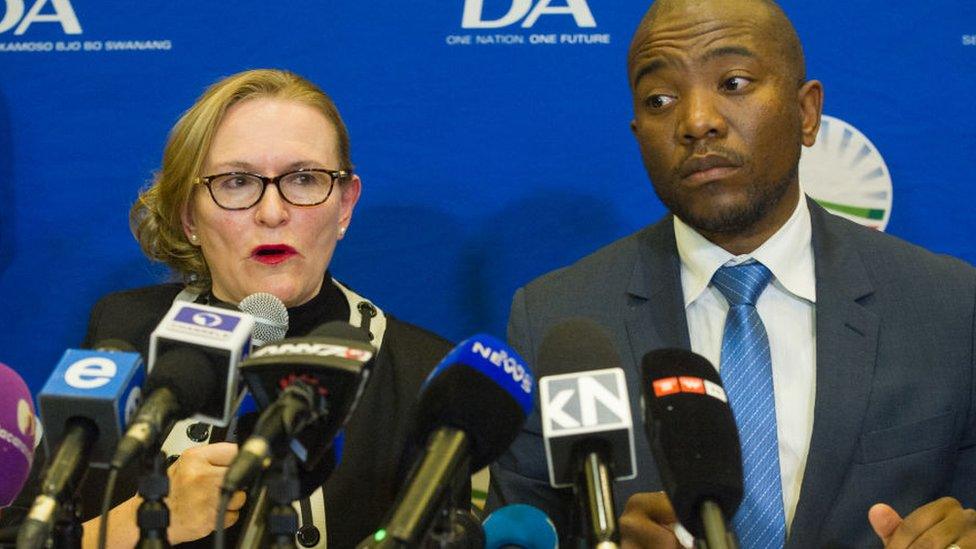
Helen Zille, seen here with Mmusi Maimane in 2017, has proved a controversial figure
Crunch-time came last weekend, when the DA's strident former leader, a white woman, Helen Zille, abruptly returned to high office in the party.
She is a dynamic but increasingly divisive and - one might argue - tone-deaf figure, whose 2017 tweets on colonialism infuriated Mr Maimane and offended many black South Africans.
When news was leaked that an internal panel set up to investigate the recent election setbacks had recommended that Mr Maimane step down, his resignation became almost inevitable.
And so, in the course of a few days, the DA has lost its leader, its chairman and the mayor of Johannesburg, who resigned on Monday.
Can it bounce back? Of course, it can. Indeed some will argue that all this is just a brief, necessary, and constructive purge for the party.
But behind all the nuance and the complexity, lies a simple challenge.
To rebuild and progress, the DA needs to hold on to its white supporters, some of whom are defecting to more radical parties, while convincing black South Africans that it is not returning to its historical roots as a minority party predominantly representing the interests of whites, who make up just 9% of the population.

You may also be interested in:

The idea that the party's crisis can be reduced to a simple black-white issue might seem absurd. After all, South Africa has changed enormously since apartheid, and the modern DA is full of young black officials and politicians who have helped make strong inroads in black communities.
But 25 years after the advent of democracy, racial injustice remains a raw and dominant theme here.
Why feelings run deep over land ownership in South Africa
The ANC and its radical off-shoot, the Economic Freedom Fighters have, increasingly, sought to exploit and inflame the issue, blaming the country's economic problems on "white monopoly capital", and often attempting to polarise politics along racial grounds.
In his resignation speech on Wednesday, Mr Maimane described the DA as being the wrong "vehicle" for his vision of building a united South Africa, prompting speculation that he and other departing figures may seek to form a new party.
After so many years of ANC rule, there is a huge appetite here for a competent, centrist party that can win black support, keep the government on its toes and perhaps eventually push the ANC out of power.
But in 25 years, plenty of new parties and ANC splinter groups have fizzled out, or retreated to the extremes. Only the DA has maintained the support, and the organisational clout, to win control of a province, and to look like a potential government in waiting.
Now all that is under threat.
- Published18 December 2018
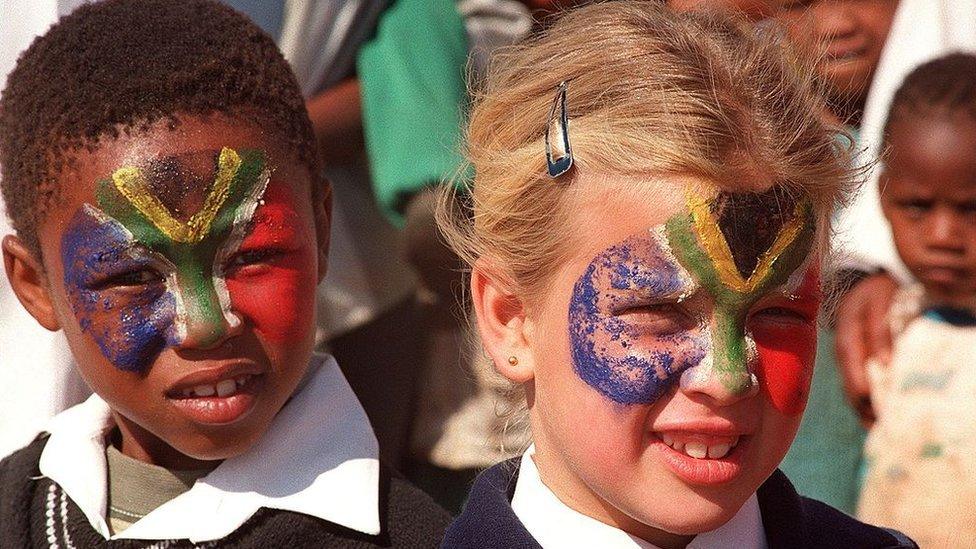
- Published1 September 2018
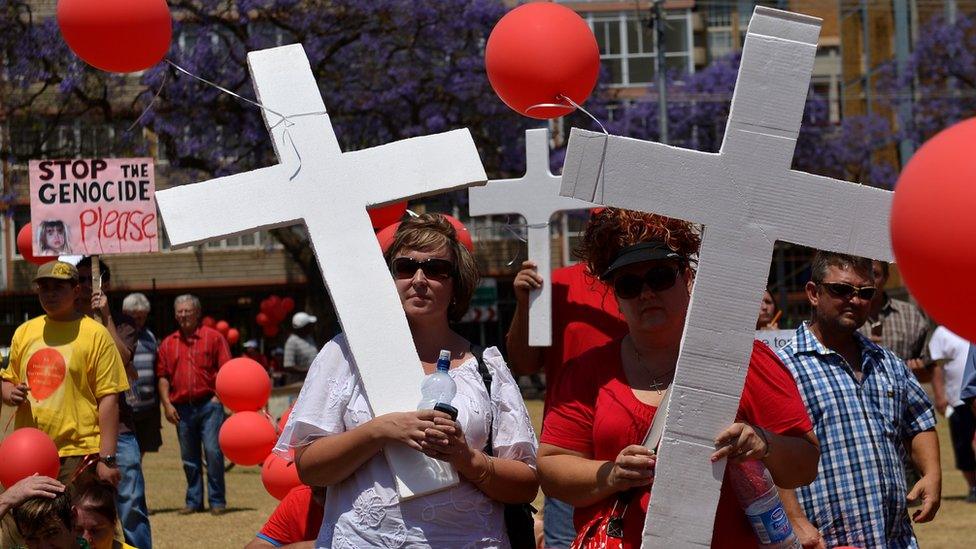
- Published15 November 2018
